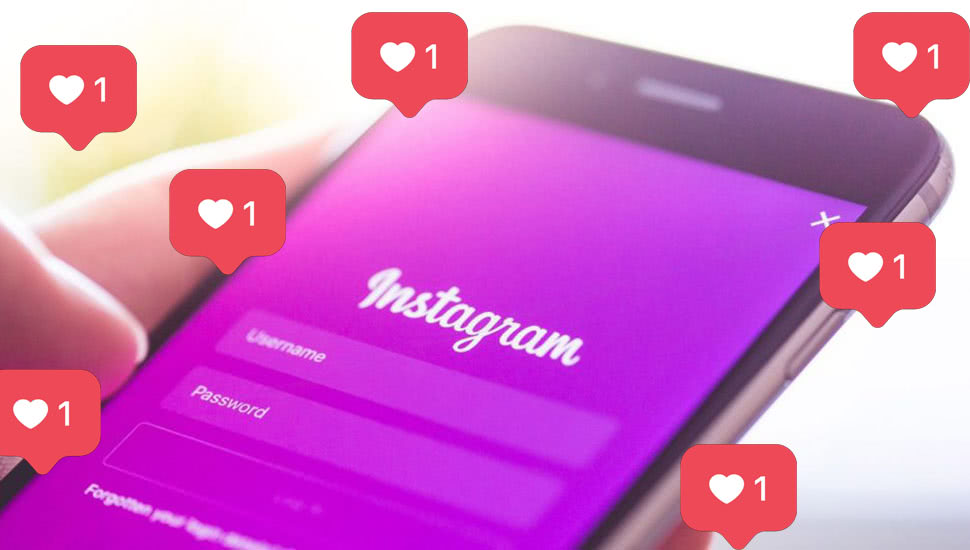As social networks have a strong development in today’s world, individuals are paying excessive attention to phony web points. So what will occur if these unreal numbers disappear? The brand-new update from Instagram will help us to address this question.
Instagram is rolling out covert likes six months after they initially announced the “test” that would hide the public like rely on all Instagram posts. At first, Instagram’s likes disappeared in Canada last May and after that expanded to other nations, consisting of Australia, Brazil, Ireland, Italy, Japan, and New Zealand. And recently, the platform also conceals likes in the US.
Why Instagram is Concealing Likes?
Instagram produces a concealed likes feature with the function to produce a safe and healthy location to spend time online. When likes are public, social networks users care too much about them. Then, they see it as a metric of success, specifically teasing those who get too couple of, or buying likes to try to acquire admiration. Therefore, Instagram desires “its fans to focus on the images and videos you share, not the number of likes they get.”
When the news broke. some celebrities share their thought. On the one hand, a lot of them raise a favorable voice about hidden likes. For instance, CardiB wrote on her Instagram: “what makes you feel more insecure getting no likes or people constantly giving opinions about you, your life and subjects? What you think IG should do?”
Besides CardiB, Kim Kardashian West also agrees that removing Instagram likes could be useful for our psychological health. In the New York Times’ DealBook Conference, Kim stated: “As far as psychological health, I think taking the likes away and taking that element far from [Instagram] would be useful for individuals.”
“I find myself to be exceptionally mentally strong and I have individuals who are consumed with the remarks, and I find that to be truly unhealthy,” Kim said.
On the other hand, some well-known names slammed the decision. Nicki Minaj, for example, threatened to stop publishing on the platform. However, Instagram’s president kept in mind that the motion does not generally focus on the recognized names. “It has to do with youths,” he said. “The idea is to try and depressurize Instagram, make it less of a competitor, give individuals more space to focus on linking with individuals that they love, things that motivate them.”
How Does This Feature Work
Already, just users in Canada, Australia, Brazil, Ireland, Italy, Japan, and New Zealand and picked test groups in the United States have access to surprise likes on Instagram. If you remain in the test group, you’ll see a banner at the top of your house feed discuss why you do not see likes on another user’s posts anymore.
The likes will be concealed for fans, but users will still have the ability to see how numerous likes they’ve received on a post. Here’s what Instagram looks like with the style tweak.
“As you scroll through your feed, there are no like counts,” stated Mark Zuckerberg at F8. “You can see who liked an image or video, you can tap through to see [the list], and if you have the time you can include them all up yourself.”
The number of like will not be revealed under your post. If you desire to see how much likes you get, tap “others” under your blog site post.

How Will a Like-Free Instagram Affect The Marketers
After Instagram reveals concealed likes, there is a huge question that how will this affect Instagram influencers and companies?
Clearly, this modification has a big effect on influencers, whether brand names can discover appropriate Instagram influencers to deal with.
Takumi, a UK-based marketing software application service provider, wishes to be the bridging point between brand names and influencers. The business described Instagram as ‘today’s cultural engine’ and it will match top-class influencers with the most authentic brand name messages. “There are a lot of methods to do things the incorrect method in influencer marketing,” Takumi keeps in mind as part of its objective declaration. “We are advocating for properly.”
Not just Takumi, Take SocialPubli is another example. The business has the objective to ‘diversify’ influencer marketing and maintain authenticity. There is a typical guideline that in terms of ROI, likes are not a major aspect since they are too shallow.
Adam Williams, CEO of Takumi, verified that by exploring ‘alternative efficiency metrics’. For example, the business concentrates on ensured impressions created by material, helping mitigate any issues of false reach.
“As a business, we don’t think concealing likes will affect us as we work closely with influencers to collect great deals of additional insights and do not rely exclusively on the platform,” said Williams.
Brian Solis, formerly primary at Altimeter and now an independent expert has discussed why influencers have “freaking out” reactions to covert likes.
“Influencers, after all, are individuals who developed engaged communities around their individual brand names and have found out how to land rewarding recommendations with advertisers to feature items in paid posts,” he wrote on LinkedIn. “Likes, to influencers and online marketers, are likewise a type of currency, in addition to followers. The more social capital one has and shows, the more brand names can plug into network effects that extend the brand name’s reach among desired audiences.”
Final Thoughts
We all understand that surprise likes may have specific harm for some influencers and organizations. However, as William has said that It would seem not likely [Instagram] would present an upgrade that would damage their own organization model long term.” Then he suggests that rather of concentrating on vanity metrics such as ‘likes’, accountable marketers must determine ROI through the relevance of the audience and more significant engagement, such as click-throughs.
Hidden likes will be an inspiration for influencers and brand names to develop more artsy, cool, and various material. Also, “consumers may be more most likely to communicate with a broader range of brand names and developers they have a real connection with and enthusiasm for, instead of merely liking the most popular ones or trying to ‘keep up’,” William added.
















